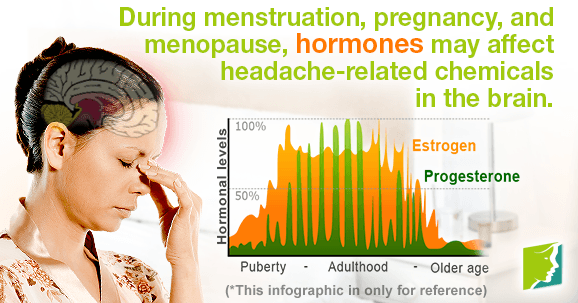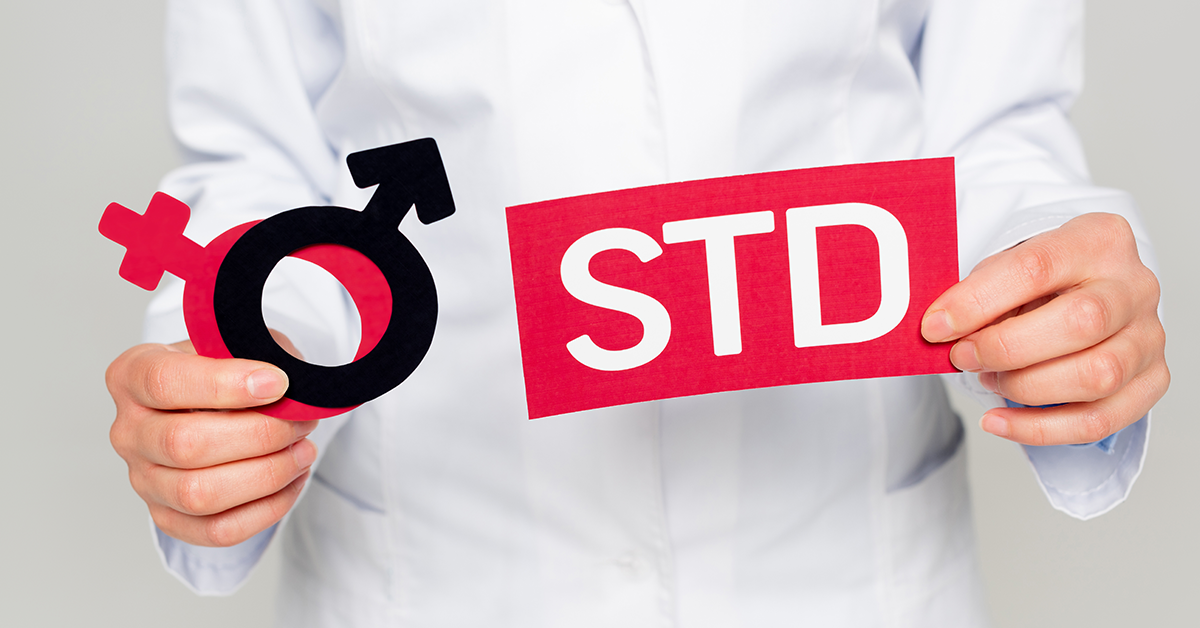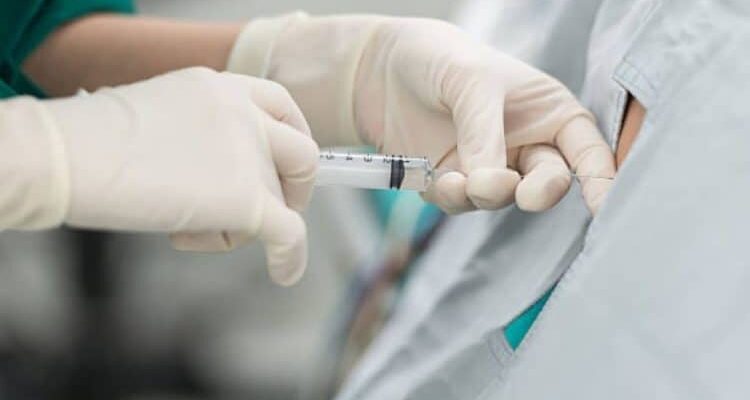Headaches caused by hormonal changes are a very common condition in women with many causes. However, you have many options for definitive treatment of headaches.

Headaches can be caused by many factors, including genetics and diet. In women, hormonal changes are a major contributing factor in chronic headaches and migraines.
Hormone levels often change during the menstrual cycle, pregnancy, and menopause. It is also affected by oral contraceptives and hormone replacement therapy. Doctors often prescribe medications or other treatments to help relieve headaches.
Women with headaches due to hormonal changes often use pain relievers during pregnancy or menopause. However, many people ignore this condition and do not learn to treat the disease completely. So is a headache caused by hormonal changes dangerous? Let’s learn about the following article with us.
Causes of headaches caused by hormonal changes

Headaches, especially migraines, are related to the female hormone estrogen. Estrogen controls chemicals in the brain that affect pain perception. A drop in estrogen levels can cause headaches. Hormone levels change for many reasons, including:
- Menstrual cycle: Estrogen and progesterone drops to their lowest levels just before menstruation, causing headaches.
- Pregnant: Estrogen levels increase during pregnancy. For many women, hormonal headaches go away during pregnancy. However, some people will experience migraines during early pregnancy and will seek relief after the first trimester. After childbirth, estrogen levels drop rapidly.
- Perimenopause and menopause: Fluctuating hormone levels during perimenopause cause some women to experience more headaches. About two-thirds of women with migraines report that their symptoms improve when they reach menopause. However, for some people, migraines actually become more severe. This may be due to the use of hormone replacement therapy.
- Birth control pills and hormone replacement therapy: Birth control pills and hormone replacement therapy can cause hormone levels to rise and fall. Women’s migraines can be caused by hormonal changes when taking birth control pills. They often get migraines during the last week of their cycle, when the pill is non-hormonal.
Risk of getting
Heredity plays a role in causing chronic migraine. In addition to hormones, other factors also contribute to migraines such as:
- Skipping meals
- Sleeping too much or too little
- Light, sound or strong smell
- Severe weather changes
- Alcoholic beverages, especially red wine
- Too much caffeine or too little caffeine
- Stress
- Convenience food
- Monosodium glutamate (MSG), flavor enhancer
- Ripe cheese
- Soybean products
- Artificial sweeteners
Symptoms of headaches caused by hormonal changes
The main feature of a headache caused by hormonal changes is a headache or migraine. However, many women experience other symptoms that can help doctors diagnose them with hormonal headaches.
Menstrual or hormonal migraines are similar to regular migraines. A migraine is a throbbing pain that begins on one side of the head. It may also be associated with sensitivity to light, nausea, or vomiting.
Other symptoms of hormonal headaches include:
- Loss of appetite
- Tired
- Acne
- Athritis
- Decreased urine
- Lack of coordination
- Constipation
- Craving for wine, salt or chocolate
Treatment of headaches caused by hormonal changes
Home remedies
The sooner you start treating your headache, the better your chances of relief. Some home remedies that will help relieve headaches include:
- Drink a lot of water
- Lie down in a quiet room with no light
- Apply an ice pack or cold cloth to your head
- Massage the area where you feel pain
- Do deep breathing or other relaxation exercises.
Biofeedback can help you learn how to relax certain muscles to reduce the frequency of headaches or pain. Your doctor may also recommend magnesium supplements to help reduce headache intensity. Reducing stress in your life can also help prevent headaches or migraines. Complementary treatments include acupuncture and massage.
Medicine
Some drugs focus on acute treatment. These medications are given when a headache or migraine has started, including:
Over-the-counter non-steroidal anti-inflammatory drugs (NSAIDs), such as ibuprofen
triptans, which are migraine medications that can reduce the intensity of a migraine attack.
For women who frequently experience headaches due to hormonal changes, preventive therapy and medication may be used. These medications can be taken daily or before the onset of menstrual headaches. These drugs include:
- Beta blockers
- Anticonvulsants
- Calcium Blocker
- Antidepressants
Hormone therapy
If preventive medicine fails, your doctor may prescribe hormone therapy. You can take estrogen in pill or sachet form.
Birth control pills are often used to reduce hormones as well as relieve headaches caused by hormonal changes. If you take any form of hormonal birth control and have a headache, your doctor may change your dose. Depending on the problem, your doctor may switch to a medication with a lower dose of estrogen to relieve your symptoms.
For some women, doctors recommend starting the next pack early, meaning skipping the last week’s hormone-free placebo pills. Doctors usually order this every 3–6 months, which can reduce the frequency of headaches.
Treatment of headaches caused by hormonal changes in special cases
Women who are pregnant or breastfeeding
If you are planning to become pregnant, are pregnant or breast-feeding, discuss all of your medications with your doctor. Some headache medications can harm your baby’s development. Your doctor can substitute medicine for you.
During perimenopause or menopause
If you take hormone replacement medication and experience headaches, ask your doctor to adjust your dose. An estrogen patch can provide a low, steady dose of estrogen that can reduce the frequency and severity of headaches.
Prevent headaches caused by hormonal changes
If your menstrual cycle is regular, your doctor may recommend preventive medication. You’ll start taking it a few days before your period and last up to two weeks. In some cases, you have to take the medicine every day.
Keep a headache diary to track your menstrual cycle, diet, sleep, and exercise habits. This will help identify possible triggers.
If you take birth control pills, ask your doctor if you can:
- Switch to another regimen that has fewer days or no placebo days
- Taking pills with a lower dose of estrogen
- Take low-dose estrogen pills instead of placebo days
- Wear the estrogen patch on the days of the placebo pill
- Switch to progestin-only birth control pills
If you’re not currently on birth control pills, consider asking your doctor before taking them to relieve headaches caused by hormonal changes.
Complications and Urgent Symptoms of Hormonal Headaches
People with migraines in general are more likely to have the following symptoms:
- Depression
- Concerned
- Sleep disorders
Women who frequently experience hormonal headaches or menstrual migraines are also more susceptible to these complications.
Birth control pills and estrogen are safe for many women, but they also have a higher risk of stroke and blood clots. Women with high blood pressure or a family history of stroke are particularly at risk for these complications.
Get emergency medical help right away if you have a sudden, severe headache and symptoms such as:
- Dizzy
- Stiff neck
- Rash
- Shortness of breath
- Loss of vision
- Any other symptoms.







